Articles
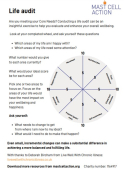
Life Audit
Are you meeting your Core Needs? Conducting a life audit can be an insightful exercise to help you evaluate and enhance your overall wellbeing.
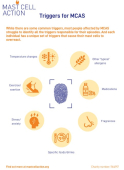
Triggers
This resource details some of the more common triggers of Mast Cell Activation Syndrome.
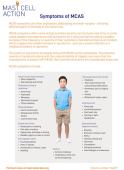
Symptoms of MCAS
This resource details some of the more common symptoms of Mast Cell Activation Syndrome.
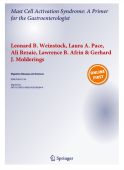
Mast Cell Activation Syndrome: A Primer for the Gastroenterologist
Mast Cell Activation Syndrome: A Primer for the Gastroenterologist Leonard B. Weinstock, Laura A. Pace, Ali Rezaie, Lawrence B. Afrin & Gerhard J. Molderings
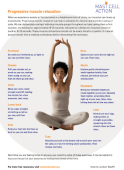
Progressive Muscle Relaxation for Adults
When we experience anxiety or stress, our muscles can tense up. Progressive muscle relaxation can help to alleviate this tension and promote a sense of calm.
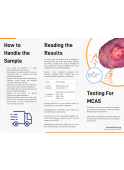
MCAS Testing for Healthcare Professionals
This leaflet details some of the tests used to diagnose MCAS, how to order and handle a sample and how to read the results.
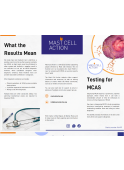
MCAS Testing
This leaflet documents some of the tests that may be used to diagnose MCAS and explains how to read the results.
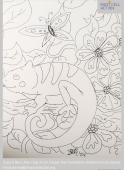
Casper Colouring Page
This Casper colouring page is a fun resource for children and a great way for them to express their feelings and emotions in colour.

Reasonable adjustments in the workplace full pack
This is our full pack with multiple resources to support requesting reasonable adjustments in the workplace with MCAS.
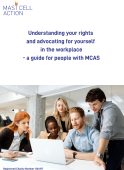
Understanding your rights and advocating for yourself in the workplace - a guide for people with MCAS
This guide helps you to understand your rights and the support that could be put into place in your workplace to help you.

MCAS for employers
This guide for employers explains MCAS and the support that could be put into place in the workplace for those with MCAS.
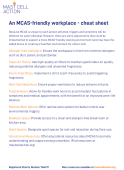
An MCAS-friendly workplace - cheat sheet
This cheat sheet has top tips that might be helpful when creating an MCAS-friendly work place.
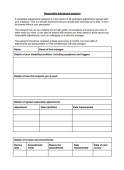
Reasonable adjustment passport
A workplace adjustments passport is a live record of all workplace adjustments agreed with your employer.
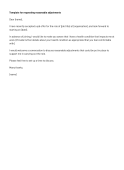
Template for requesting reasonable adjustments
This template may be helpful when requesting reasonable adjustments from your employer.
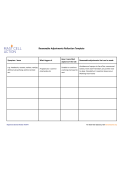
Reasonable Adjustments Reflection Template.
This table may support you to break down the reasonable adjustments that could be made to support you in your workplace.
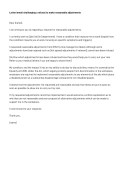
Letter challenging a refusal to make reasonable adjustments
This letter may be useful if you need to challenge a refusal to implement reasonable adjustments in your workplace.
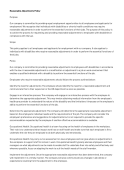
Reasonable Adjustments Policy Template
This template policy can be shared with your workplace to support the development and implementation of a reasonable adjustment policy.
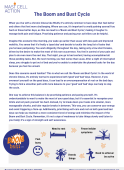
Boom and bust cycle theory for adults
In the world of chronic illness, it's entirely normal to experience both 'good' and 'bad' days. However, if you overexert yourself on the good days, it can lead to an overcompensation of rest on the bad days. Trying to find a smoother path with more balance to your ‘good’ and ‘bad’ days can help to stop the cycle.
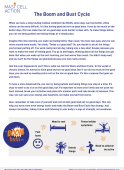
Boom and bust cycle theory for Kids
In the world of chronic illness, it's normal to have good and not-so-good days. But if you do too much on the good days, you can end up needing extra rest on the not-so-good days. It's like a seesaw that goes up and down.
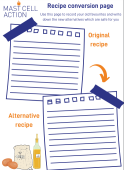
Recipe Conversion
You can use this blank recipe conversion page to note down any MCAS friendly changes you have made to your favourite recipe's.
Become a friend
Sign up to become a Friend of Mast Cell Action so we can keep you up to date on our progress and on how to get involved in our latest campaigns and initiatives.
Donate
Mast Cell Action relies entirely on the generosity of people like you. Please make a donation now and together we can make a difference to those affected by MCAS.







